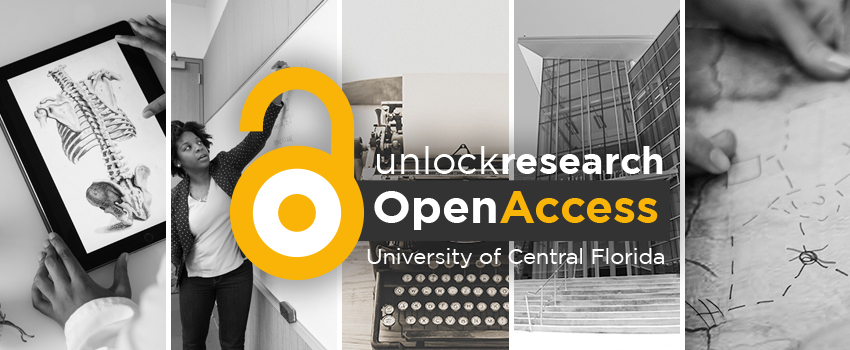
Start Date
16-10-2020 12:00 AM
Description
Introduction to Open Access & Open Access Week 2020
Now in its thirteenth year, Open Access Week is a global event that celebrates the Open Access (OA) movement. It aims to bring awareness to OA and explore the benefits it brings to all. In addition, it is a time for institutions to highlight Open Access efforts and activities locally at their institution. At UCF Libraries, we will be exploring a variety of OA topics during this year’s Open Access Week through blog posts and social media posts to help you learn more about Open Access and what it means for universities, libraries, society, and your own published works.
What is Open Access (OA)?
“Open Access” is a term used to describe a reform movement that aims to make scholarly literature freely available on the web and free of most copyright and licensing restrictions. It can also describe an item itself. For example, if a journal article is Open Access, then that means it is available for free access and, typically, unrestricted non-commercial use.
How is Open Access Different from Traditional Publishing?
To publish something “Open Access” is in contrast to traditional publishing. Where a traditional publisher of academic journals charges money to read those journal articles, an Open Access academic journal is free to read and access online.
However, those interested in publishing will want to consider a variety of factors before deciding if OA is right for them. For instance, there may be other costs associated with publishing, such as Article Processing Charges — a fee charged to authors to make their work accessible in some Open Access journals. In addition, researchers will want to explore strategies for discerning reliable publishers and considerations for grant funding requirements.
Is Open Access Only for Academic Journal Articles?
Open Access does not just apply to academic journal articles. Books, textbooks, data-sets, and other works can also be Open Access. During Open Access Week, UCF Libraries will highlight some of these important OA resources and share how OA is important, not just in academia, but in everyday life.
Follow us all week to learn about how Open Access. Meanwhile, check out the official Open Access Week website (http://www.openaccessweek.org/) and UCF Libraries’ Office of Scholarly Communication website for more information (https://library.ucf.edu/about/departments/scholarly-communication/).
Included in
Introduction to Open Access & Open Access Week 2020
Introduction to Open Access & Open Access Week 2020
Now in its thirteenth year, Open Access Week is a global event that celebrates the Open Access (OA) movement. It aims to bring awareness to OA and explore the benefits it brings to all. In addition, it is a time for institutions to highlight Open Access efforts and activities locally at their institution. At UCF Libraries, we will be exploring a variety of OA topics during this year’s Open Access Week through blog posts and social media posts to help you learn more about Open Access and what it means for universities, libraries, society, and your own published works.
What is Open Access (OA)?
“Open Access” is a term used to describe a reform movement that aims to make scholarly literature freely available on the web and free of most copyright and licensing restrictions. It can also describe an item itself. For example, if a journal article is Open Access, then that means it is available for free access and, typically, unrestricted non-commercial use.
How is Open Access Different from Traditional Publishing?
To publish something “Open Access” is in contrast to traditional publishing. Where a traditional publisher of academic journals charges money to read those journal articles, an Open Access academic journal is free to read and access online.
However, those interested in publishing will want to consider a variety of factors before deciding if OA is right for them. For instance, there may be other costs associated with publishing, such as Article Processing Charges — a fee charged to authors to make their work accessible in some Open Access journals. In addition, researchers will want to explore strategies for discerning reliable publishers and considerations for grant funding requirements.
Is Open Access Only for Academic Journal Articles?
Open Access does not just apply to academic journal articles. Books, textbooks, data-sets, and other works can also be Open Access. During Open Access Week, UCF Libraries will highlight some of these important OA resources and share how OA is important, not just in academia, but in everyday life.
Follow us all week to learn about how Open Access. Meanwhile, check out the official Open Access Week website (http://www.openaccessweek.org/) and UCF Libraries’ Office of Scholarly Communication website for more information (https://library.ucf.edu/about/departments/scholarly-communication/).